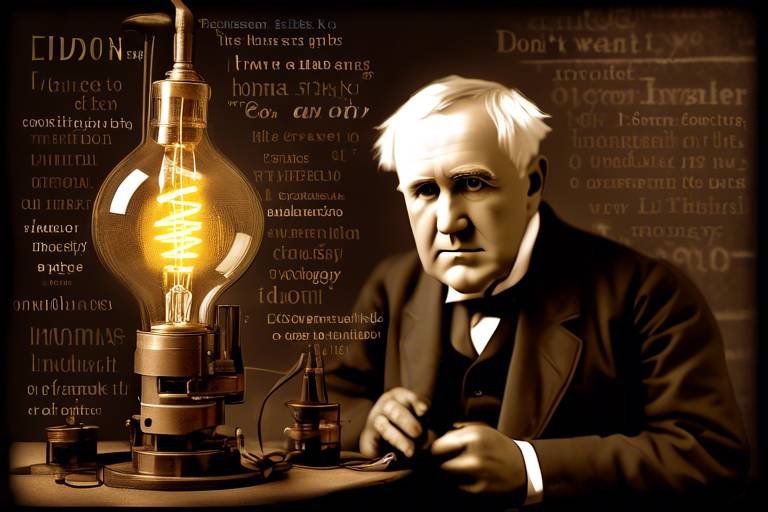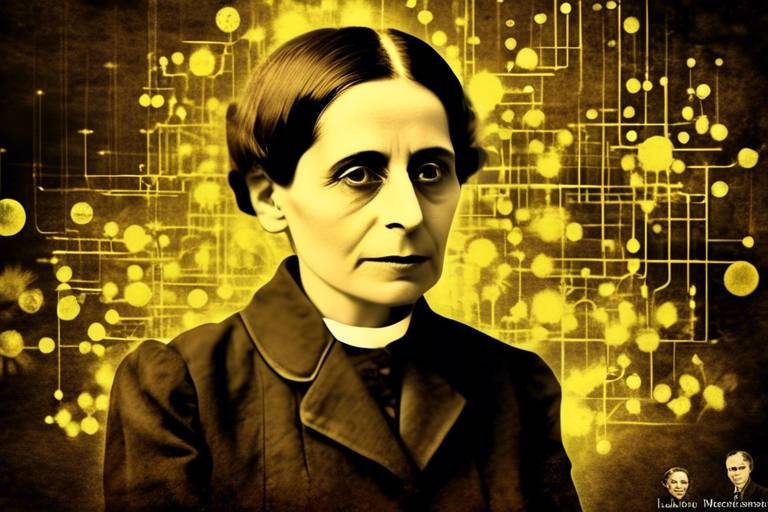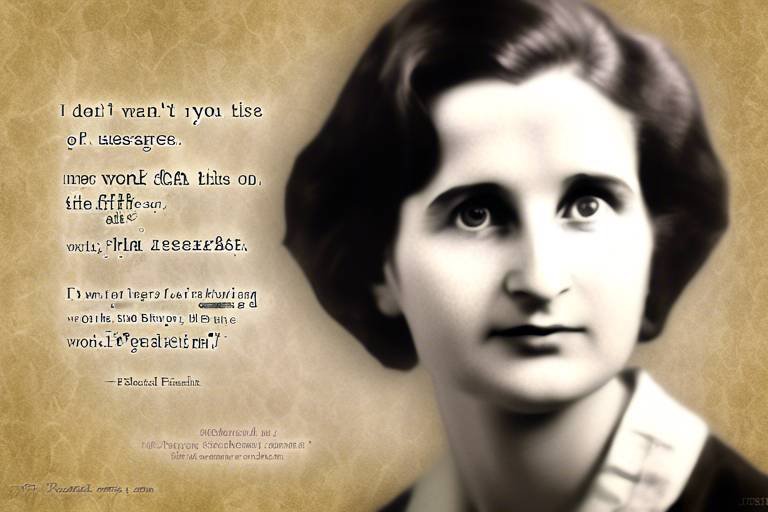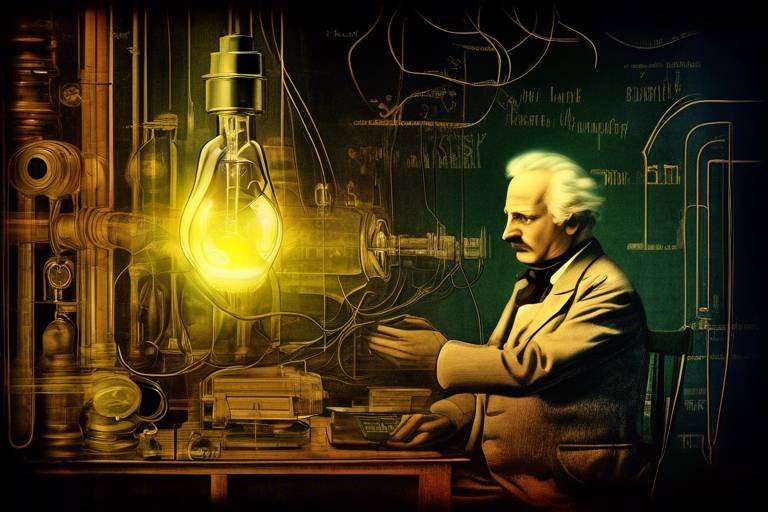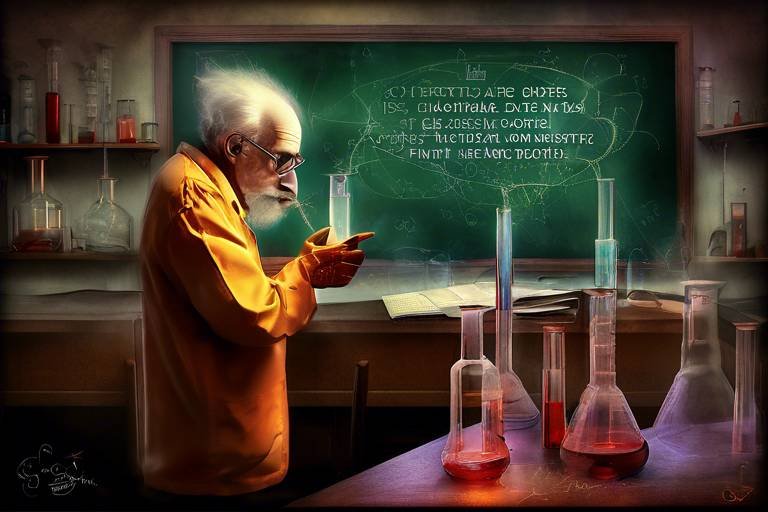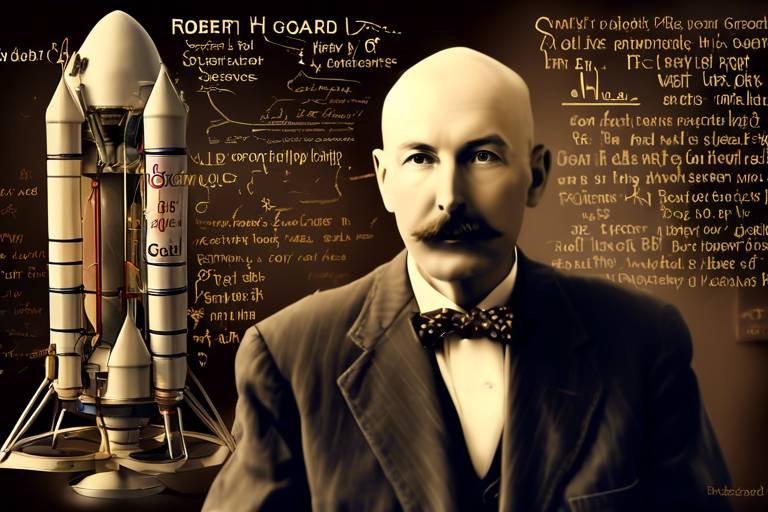The Work of Maria Montessori in Education
Maria Montessori was not just an educator; she was a revolutionary thinker whose ideas transformed the landscape of education. Born in Italy in 1870, Montessori developed a unique educational philosophy that emphasized child-centered learning, allowing children to explore and learn at their own pace. Her innovative methods have shaped countless educational practices around the globe, and her legacy continues to influence modern teaching strategies. In this article, we will delve into the core principles of Montessori education, its historical context, and the profound impact it has had on child development.
The Montessori philosophy is grounded in a few core principles that prioritize the needs and interests of the child. At its heart, this approach recognizes that children are naturally curious and capable of self-directed learning. Montessori believed that by providing a prepared environment—one that is rich in resources and opportunities for exploration—children could thrive and develop independence. This philosophy also emphasizes respect for a child's natural development, allowing them to progress through stages at their own pace. In a Montessori classroom, you won't find traditional rows of desks or rigid schedules; instead, children engage in hands-on activities that spark their imagination and foster a love for learning.
To truly appreciate Montessori's impact, it's essential to understand the historical backdrop against which her ideas emerged. The early 20th century was a time of significant social change in Italy, with industrialization altering the fabric of society. Montessori's experiences as a physician working with children in underprivileged communities profoundly influenced her approach to education. She witnessed firsthand the struggles of children who were often neglected and undervalued. This ignited her passion for creating an educational system that would empower children and promote their well-being.
Montessori's early life experiences played a crucial role in shaping her educational theories. Growing up in a progressive family, she was encouraged to pursue her interests, which led her to become one of the first female doctors in Italy. This medical background gave her a unique perspective on child development, allowing her to understand the physical and emotional needs of children. Her commitment to improving the lives of children was evident in her work at the San Lorenzo district, where she established her first classroom, which would later serve as the prototype for Montessori schools worldwide.
Maria Montessori's education and training were instrumental in her development as an educator. After earning her medical degree, she studied psychology and anthropology, which deepened her understanding of child behavior and development. She believed that education should be based on scientific observation of children, and her training allowed her to apply these principles effectively. Montessori's approach was not just theoretical; it was grounded in practical, real-world applications that made learning meaningful for children.
In 1907, Montessori opened her first school, the Casa dei Bambini, in a poor neighborhood of Rome. This groundbreaking institution was designed to serve children from ages three to six, providing them with a nurturing environment that encouraged exploration and independence. The success of the Casa dei Bambini was remarkable; children thrived in this new educational setting, demonstrating remarkable concentration and a love for learning. This school became a model for Montessori programs worldwide, showcasing the effectiveness of her methods and the potential for children to excel when given the right tools and environment.
Montessori classrooms are characterized by several key educational techniques that set them apart from traditional settings. One of the most notable is the use of hands-on learning. Children engage with materials that are designed to be manipulated, allowing them to learn through experience rather than rote memorization. Additionally, mixed-age groups encourage collaboration, as older children often mentor younger ones, fostering a sense of community and shared responsibility. The prepared environment is carefully curated to promote exploration, with materials that are accessible and inviting.
The impact of Montessori methods on child development is profound and multifaceted. Research has shown that Montessori education supports various aspects of growth, including cognitive, social, emotional, and physical development. Children in Montessori settings often exhibit increased motivation and curiosity, leading to deeper engagement with learning materials. Moreover, the emphasis on independence and self-discipline helps children develop essential life skills that extend beyond the classroom.
One of the remarkable outcomes of Montessori education is its ability to promote social skills. Through collaborative activities and peer interactions, children learn to communicate effectively, resolve conflicts, and develop empathy. In a Montessori classroom, children are encouraged to work together, share ideas, and support one another, creating a rich social environment that nurtures their interpersonal skills. This collaborative spirit not only enhances their social abilities but also prepares them for future relationships in school and beyond.
Numerous studies have demonstrated the academic success of Montessori students. Research findings indicate that children who experience Montessori education often outperform their peers in standardized tests and exhibit a love for learning that lasts a lifetime. This is largely attributed to the Montessori approach, which fosters critical thinking, creativity, and a deep understanding of concepts rather than mere memorization. The Montessori method cultivates a passion for knowledge that empowers children to become lifelong learners.
Today, the Montessori method has transcended borders, with schools established in various countries around the world. Its adaptability to different cultural contexts has made it a popular choice for parents seeking an alternative to traditional education. Montessori education has proven to be effective in diverse settings, from urban centers to rural communities, demonstrating its universal appeal. As we continue to explore the legacy of Maria Montessori, it's clear that her vision for education remains relevant, inspiring educators and parents alike to foster environments where children can thrive.
- What age groups benefit from Montessori education? Montessori education is designed for children from birth through adulthood, with specific programs tailored for different age groups.
- Is Montessori education only for certain types of children? No, Montessori education is inclusive and can benefit all children, regardless of their learning styles or abilities.
- How can parents support Montessori learning at home? Parents can support Montessori learning by providing a prepared environment, encouraging independence, and engaging in meaningful conversations with their children.

Montessori Philosophy
The Montessori philosophy is a revolutionary approach to education that emphasizes the importance of child-centered learning. At its core, this philosophy believes that children are naturally curious and capable of directing their own learning when given the right environment and tools. Unlike traditional education systems that often focus on rote memorization and standardized testing, Montessori education fosters an atmosphere of exploration and discovery. This approach respects the individual pace of each child, allowing them to engage with materials and concepts that truly resonate with their interests and developmental stages.
One of the key tenets of Montessori philosophy is the idea of independence. Children are encouraged to make choices and take responsibility for their own learning, which not only builds their confidence but also nurtures critical life skills. Imagine a garden where each plant grows at its own pace, flourishing under the right conditions. In a similar way, Montessori classrooms are designed to support each child's unique growth trajectory. This independence is not just about academic learning; it extends to social interactions and personal development, allowing children to learn from their mistakes and celebrate their successes.
Another vital aspect of the Montessori approach is the respect for a child's natural development. Montessori educators observe children closely, understanding that each child has a distinct learning style and rhythm. This observation informs the way they introduce new concepts and materials. For instance, if a child shows an interest in nature, the teacher might provide activities related to plant biology, allowing the child to explore this topic deeply. The learning environment is carefully prepared to be engaging and accessible, filled with materials that invite exploration and experimentation.
In Montessori classrooms, you will often find mixed-age groups. This setup allows younger children to learn from older peers while older children reinforce their knowledge by teaching concepts to those who are just beginning. This collaborative environment fosters a sense of community and mutual respect among students, teaching them valuable social skills. It’s like a family where everyone has something to contribute and learn, creating a dynamic and supportive learning atmosphere.
Ultimately, the Montessori philosophy is about nurturing the whole child—cognitively, socially, emotionally, and physically. It provides a framework that respects children's innate capabilities and encourages them to become active participants in their own education. In a world that often prioritizes standardized results, Montessori education stands out as a beacon of hope, advocating for a more personalized and respectful approach to learning.

Historical Context
The story of Montessori education is as captivating as the methods themselves, rooted deeply in the early 20th century, a time of significant social and educational reform in Italy. Maria Montessori, born in 1870, emerged against a backdrop of rigid educational systems that often stifled creativity and independence in children. This was an era when traditional methods emphasized rote memorization and strict discipline, leaving little room for the natural curiosity of young minds. Montessori's innovative approach was revolutionary, breaking away from these conventions and placing the child at the center of the learning process.
Montessori's journey began in the field of medicine, where she became one of the first women to graduate from the University of Rome's medical school. Her medical training provided her with a unique perspective on child development, particularly in understanding the needs of children with disabilities. This experience was pivotal, as it ignited her passion for improving educational practices for all children, regardless of their backgrounds or abilities. She believed that education should not just be about imparting knowledge but about nurturing the whole child—emotionally, socially, and physically.
In 1907, Montessori opened her first school, the Casa dei Bambini (Children's House), in a poor neighborhood of Rome. This establishment was a groundbreaking model that showcased her educational philosophy in action. The school was designed to be a prepared environment, filled with materials that encouraged exploration and learning through experience rather than direct instruction. Children were free to choose their activities, fostering a sense of independence and self-discipline. This innovative approach attracted significant attention, and soon, Montessori schools began to sprout across Italy and later around the world.
During this time, several social factors influenced Montessori's work. The Industrial Revolution had transformed society, leading to urbanization and changes in family structures. Children were often seen as laborers rather than learners, and Montessori aimed to change this perception. Her methods not only catered to the educational needs of children but also addressed the social injustices of the time, advocating for a more humane and respectful approach to education.
As Montessori's ideas gained traction, they found their way into various educational reforms across the globe. Countries like the United States, India, and the UK began to adopt her methods, adapting them to fit their cultural contexts. The Montessori movement became a symbol of progressive education, advocating for child-centered learning environments that respect the individuality of each child. Today, thousands of Montessori schools operate worldwide, continuing to embody the spirit of Montessori's original vision.
In summary, the historical context of Montessori education is not just about the timeline of events; it's about the profound shifts in societal attitudes towards children and education. Maria Montessori's legacy is a testament to the power of innovative thinking and the importance of recognizing the unique potential within every child. By understanding this context, we can appreciate the depth and significance of her contributions to education.
- What is Montessori education? Montessori education is a child-centered educational approach that emphasizes independence, hands-on learning, and respect for a child’s natural development.
- How did Maria Montessori develop her methods? Montessori developed her methods based on her observations of children and her medical training, focusing on how children learn best through exploration and interaction.
- Where was the first Montessori school established? The first Montessori school, Casa dei Bambini, was established in Rome, Italy, in 1907.
- What are the key principles of Montessori education? Key principles include child-centered learning, mixed-age classrooms, and a prepared environment that encourages exploration.
- Is Montessori education effective? Research indicates that Montessori education can lead to improved academic outcomes and social skills development in children.

Influence of Early Experiences
Maria Montessori's early experiences played a pivotal role in shaping her innovative educational theories. Born in 1870 in Chiaravalle, Italy, she was raised in a time when educational opportunities for women were limited. Despite these societal constraints, Montessori's determination to pursue education was evident from a young age. She was not only curious but also fiercely independent, traits that would later define her educational philosophy. Think about it: how often do our childhood experiences mold our perspectives? For Montessori, her early life was a canvas that painted her future approach to education.
Her journey into the world of education began when she enrolled in the University of Rome to study medicine. This was a groundbreaking achievement for a woman of her time. As she delved into the complexities of human development, she became fascinated by the psychological and emotional needs of children. Montessori's medical training provided her with insights into child development that were rare for educators of her era. She began to see children not merely as blank slates to be filled with knowledge but as individuals with unique abilities and potential waiting to be unlocked. This revolutionary perspective can be likened to a gardener nurturing a seed; with the right environment and care, that seed can bloom into a beautiful flower.
Montessori's experiences working with children in psychiatric institutions further solidified her beliefs. She observed that children thrived in environments that respected their natural instincts and desires. Instead of imposing rigid structures, she advocated for a learning atmosphere that encouraged exploration and self-directed activity. This insight led her to develop the concept of the "prepared environment," where children could engage with materials that sparked their curiosity and fostered independence. Imagine a child in a room filled with tools, books, and interactive activities; the possibilities for discovery are endless!
Moreover, Montessori's commitment to improving the lives of underprivileged children was also influenced by her early experiences. She witnessed firsthand the struggles faced by children in poverty, which ignited her passion for creating an educational system that was accessible to all. Her philosophy emphasized respect for the child and their innate ability to learn, regardless of their background. This belief is a cornerstone of her approach and remains relevant in today’s diverse educational landscape.
In summary, Maria Montessori's early experiences were crucial in shaping her educational philosophy. They instilled in her a deep understanding of child development and a commitment to fostering an environment where children could thrive. By reflecting on her journey, we can appreciate how our own experiences might influence our perspectives and actions. Montessori's legacy continues to inspire educators and parents alike, reminding us of the profound impact that early experiences can have on shaping not just individuals, but entire educational systems.

Education and Training
Maria Montessori's journey into the world of education was not a straightforward path; it was shaped by her unique background and experiences. Born in 1870 in Chiaravalle, Italy, she was one of the first women to graduate from the University of Rome with a degree in medicine. This was no small feat in a time when women were often discouraged from pursuing higher education. Montessori's medical training profoundly influenced her educational philosophy, as she developed a keen understanding of child development and the importance of observing children in their natural environments.
During her medical studies, Montessori encountered children with disabilities, which sparked her passion for improving educational practices for all children. She believed that education should cater to the individual needs of each child, rather than adhering to a one-size-fits-all approach. This belief led her to explore the scientific method of observation, which became a cornerstone of her teaching philosophy. Montessori's early experiences taught her that children are not passive recipients of knowledge but active participants in their learning journey. This realization was revolutionary and laid the groundwork for the Montessori method.
After completing her medical degree, Montessori worked in a psychiatric clinic where she gained further insights into child psychology. Here, she observed how children learn best when they are engaged, motivated, and allowed to explore at their own pace. This understanding was crucial in shaping her ideas about child-centered education. Montessori's approach emphasized respect for the child's natural development and the importance of creating an environment that fosters independence and exploration.
In 1907, Montessori opened her first school, the Casa dei Bambini, in a poor neighborhood in Rome. This innovative school served as a living laboratory where she could apply her educational theories. The success of the Casa dei Bambini attracted attention, leading to the establishment of more Montessori schools across Italy and eventually around the world. Montessori's educational training was not just about imparting knowledge; it was about preparing educators to observe, guide, and nurture children's innate desire to learn.
To summarize, Montessori's education and training were deeply intertwined with her philosophy. Her medical background provided her with a solid foundation in understanding child development, while her experiences with children in various settings informed her innovative educational methods. Today, her legacy lives on through the thousands of Montessori schools worldwide, all rooted in the principles she championed.

First Montessori School
In 1907, Maria Montessori opened the doors to the first Montessori school, known as the Casa dei Bambini, in the bustling San Lorenzo district of Rome. This groundbreaking institution was not just a school; it was a vibrant learning environment designed to cater to the needs of children aged 2.5 to 6 years old. Montessori's vision was clear: she wanted to create a space where children could thrive independently, exploring their interests at their own pace. The Casa dei Bambini was a radical departure from traditional educational practices of the time, which often relied on rote memorization and strict discipline.
What made the Casa dei Bambini truly unique was its prepared environment. Montessori meticulously designed the classroom to be inviting and accessible, filled with specially crafted educational materials that encouraged hands-on learning. Children were free to choose their activities, whether it was pouring water, sorting objects, or working with geometric shapes. This freedom not only fostered a sense of independence but also ignited a passion for learning that was palpable in the air. Montessori believed that when children are allowed to explore their interests, they become more engaged and motivated learners.
The success of the Casa dei Bambini quickly caught the attention of educators and parents alike. Within a short period, the school became a model for Montessori programs around the world. The principles and techniques developed in this first school laid the foundation for what would become a global movement in education. Montessori's approach emphasized respect for the child as an individual, acknowledging their unique learning styles and developmental needs.
As the Casa dei Bambini flourished, it also faced challenges. Montessori was determined to prove that her methods could work for all children, regardless of their backgrounds. The school served children from various socioeconomic statuses, showcasing the adaptability and inclusivity of her educational philosophy. This commitment to diversity not only enriched the learning experience but also demonstrated that education could be a powerful tool for social change.
Today, the legacy of the first Montessori school continues to inspire educators worldwide. Montessori's innovative approach has evolved into a comprehensive educational philosophy that values independence, curiosity, and respect for the child. The Casa dei Bambini stands as a testament to the idea that when children are given the freedom to learn in a nurturing environment, they can achieve remarkable things.
- What is the Montessori method? The Montessori method is an educational approach developed by Maria Montessori that emphasizes child-centered learning, independence, and respect for a child's natural development.
- How does the Montessori classroom differ from traditional classrooms? Montessori classrooms are designed to be prepared environments where children can choose their activities and learn at their own pace, in contrast to traditional classrooms that often rely on direct instruction and standardized curricula.
- What age groups benefit from Montessori education? Montessori education typically serves children from birth to age 18, with a strong emphasis on early childhood education (ages 2.5 to 6).
- Are Montessori schools effective? Research has shown that Montessori education can lead to strong academic and social outcomes, fostering a love for learning and promoting critical thinking skills.

Core Educational Techniques
The Montessori educational approach is distinguished by a set of core techniques that promote a unique learning environment. Central to this philosophy is the concept of hands-on learning, where children engage directly with materials rather than passively receiving information. Imagine a child exploring a geometric shape through tactile manipulation; this not only solidifies their understanding but also ignites a passion for discovery. In Montessori classrooms, learning is not confined to textbooks or lectures; instead, it becomes an adventure where children are the explorers, and the classroom is their vast landscape.
Another essential technique is the use of mixed-age groups. This setup allows younger children to learn from their older peers, fostering a sense of community and collaboration. It’s akin to a family setting where siblings teach and support one another. In this environment, older children reinforce their knowledge by teaching concepts they have already mastered, while younger ones absorb new ideas through observation and interaction. This peer learning not only enhances academic skills but also nurtures social and emotional development, creating a harmonious classroom dynamic.
Moreover, the prepared environment is a cornerstone of Montessori education. Every detail in the classroom is meticulously arranged to encourage exploration and independence. Imagine walking into a room where every material is within reach, beautifully organized, and designed to captivate a child’s curiosity. This environment empowers children to make choices about their learning, fostering a sense of autonomy. They can choose to work on a puzzle, experiment with science kits, or engage in creative arts—all at their own pace. This freedom is crucial; it helps children develop self-discipline and a love for learning that lasts a lifetime.
In addition to these techniques, Montessori educators play a vital role as guides rather than traditional instructors. They observe each child's interests and developmental stage, providing support and resources tailored to individual needs. This approach is similar to a coach who understands each player’s strengths and weaknesses, guiding them to improve without imposing rigid structures. The educator’s role is to facilitate exploration and discovery, allowing children to take ownership of their learning journey.
Overall, the core educational techniques of Montessori—hands-on learning, mixed-age groups, a prepared environment, and the role of the educator—create a rich tapestry of learning experiences. They are not just methods; they are a philosophy that respects and nurtures the innate curiosity and potential of every child. The result? Children who are not only knowledgeable but also confident, independent thinkers ready to take on the world.
- What is the main goal of Montessori education?
The main goal is to foster a child's natural desire to learn by providing an environment that encourages exploration and independence. - How does mixed-age grouping benefit children?
It allows younger children to learn from older peers while reinforcing the older children's knowledge, promoting social skills and community. - What role do teachers play in Montessori classrooms?
Teachers act as guides, observing and facilitating rather than directing, to support each child's unique learning journey. - Are Montessori methods effective for academic success?
Yes, research shows that Montessori students often perform well academically while developing a love for learning.

Impact on Child Development
The Montessori method has a profound impact on child development, fostering a holistic approach that nurtures not just academic skills but also emotional, social, and physical growth. By placing the child at the center of the learning experience, Montessori education encourages children to explore their interests and learn at their own pace. This self-directed learning promotes a sense of ownership and responsibility, which is crucial for developing independent thinkers.
One of the standout features of Montessori education is its emphasis on hands-on learning. Children engage with tactile materials that help them grasp complex concepts through real-world experiences. For instance, instead of merely learning about numbers through rote memorization, a child might use beads to physically count and perform mathematical operations. This method not only makes learning enjoyable but also enhances cognitive development by creating neural connections that are essential for understanding.
Moreover, the Montessori environment is designed to promote social interaction and collaboration among peers. Children of varying ages work together, allowing them to learn from one another and develop essential social skills. This setup fosters empathy and communication abilities, as children navigate relationships and group dynamics. The respect for each child’s individuality in this setting also cultivates a sense of community and belonging, which is vital for emotional development.
Research has shown that children educated in Montessori settings often exhibit superior outcomes in various developmental domains. A study conducted by the University of Virginia found that Montessori students outperformed their peers in standardized tests, demonstrating the effectiveness of this educational approach. In addition to academic success, these students tend to develop a love for learning, which is crucial for lifelong educational engagement.
To illustrate the impact of Montessori education on child development, consider the following table that summarizes key developmental areas supported by Montessori methods:
| Developmental Area | Montessori Impact |
|---|---|
| Cognitive | Hands-on learning promotes critical thinking and problem-solving skills. |
| Social | Mixed-age groups encourage collaboration and peer learning. |
| Emotional | Child-centered approach fosters self-esteem and independence. |
| Physical | Activities designed to enhance fine and gross motor skills through movement. |
In conclusion, the Montessori approach not only equips children with academic knowledge but also nurtures their emotional and social skills, preparing them for the complexities of life. By emphasizing independence, respect, and a love for learning, Montessori education lays a solid foundation for lifelong success.
- What age group is Montessori education suitable for? Montessori education can be adapted for children from birth through adolescence, with different materials and methods tailored to each developmental stage.
- How does Montessori education differ from traditional schooling? Unlike traditional education, which often relies on a one-size-fits-all approach, Montessori education is individualized, allowing children to learn at their own pace and pursue their interests.
- Are Montessori methods effective for all children? While many children thrive in Montessori settings, it's essential to consider each child's unique learning style and needs. Some may benefit more from structured environments.
- Can Montessori education be integrated into public schools? Yes, many public schools have adopted Montessori methods, recognizing their effectiveness in promoting engaged and motivated learners.

Social Skills Development
One of the most remarkable aspects of the Montessori method is its profound impact on . Unlike traditional education systems that often emphasize individual competition, Montessori classrooms foster a sense of community and collaboration among students. This environment encourages children to engage in peer interactions and collaborative activities, which are essential for developing empathy, communication skills, and conflict resolution abilities.
In a Montessori setting, children are often grouped in mixed-age classes. This unique structure allows younger students to learn from their older peers, while older students reinforce their knowledge by teaching concepts to younger classmates. Such interactions not only enhance academic learning but also nurture social bonds. When children work together on projects or share tasks, they learn to negotiate, cooperate, and appreciate different perspectives. These experiences are crucial as they lay the foundation for healthy relationships in their future.
Moreover, the Montessori approach encourages children to take responsibility for their own actions and decisions. When children are given the freedom to choose their activities, they also learn to respect the choices of others. This respect for individual preferences fosters a sense of community and belonging, which is vital for social development. Children learn to listen, support, and celebrate one another, creating an atmosphere of mutual respect and understanding.
Research has shown that Montessori students often demonstrate superior social skills compared to their peers in traditional educational settings. They are more likely to engage in positive social interactions, show empathy towards others, and effectively manage conflicts. This is largely due to the emphasis on collaborative learning and the development of emotional intelligence within the Montessori framework.
In summary, the Montessori method not only focuses on academic achievements but also prioritizes the development of essential social skills. By promoting collaboration, respect, and empathy, Montessori education equips children with the tools they need to navigate their social worlds successfully. As they grow, these skills will serve them well in their personal and professional lives, making them well-rounded individuals ready to contribute positively to society.
- What age group does Montessori education cater to? Montessori education typically serves children from birth to age 18, with specialized programs for different developmental stages.
- How does Montessori education differ from traditional education? Montessori education emphasizes child-centered learning, fostering independence, and encouraging exploration, whereas traditional education often relies on a more structured, teacher-led approach.
- Are Montessori methods effective for all children? Yes, Montessori methods can be adapted to suit various learning styles and needs, making it effective for a diverse range of children.
- What qualifications do Montessori teachers have? Montessori teachers undergo specialized training in Montessori methods and philosophy, often earning a certification from a recognized Montessori training program.

Academic Achievement
The Montessori method has garnered significant attention for its remarkable impact on . Research has consistently shown that children educated in Montessori environments often outperform their peers in traditional educational settings. But what makes this approach so effective? It all boils down to the principles that guide Montessori education, which emphasize independence, self-directed learning, and intrinsic motivation.
One of the key aspects of Montessori education is its focus on hands-on learning. In a typical classroom, children engage with materials that are designed to be both educational and engaging. This tactile approach allows students to explore concepts at their own pace, fostering a deeper understanding of the material. For instance, rather than simply memorizing multiplication tables, a child might use physical objects to visualize and solve mathematical problems. This not only makes learning fun but also solidifies their grasp of complex concepts.
Moreover, Montessori classrooms often feature mixed-age groups, which create a community-like atmosphere where older children can mentor younger ones. This peer-to-peer learning dynamic encourages collaboration and helps students develop a sense of responsibility. Research indicates that such interactions can lead to enhanced academic outcomes, as children learn from each other and benefit from diverse perspectives. In fact, studies have shown that Montessori students tend to score higher on standardized tests compared to their traditionally educated counterparts.
| Study | Findings | Year |
|---|---|---|
| University of Virginia Study | Montessori students scored significantly higher in math and reading. | 2017 |
| American Educational Research Association | Improved social and academic skills in Montessori students. | 2018 |
| Northwestern University | Higher levels of creativity and problem-solving skills. | 2020 |
Another critical factor contributing to the academic success of Montessori students is the prepared environment. Classrooms are meticulously designed to encourage exploration and discovery. Children are free to choose their activities, which fosters a sense of ownership over their learning. This freedom is not chaotic; instead, it is structured in a way that guides students toward meaningful educational experiences. When children are engaged in learning that resonates with them personally, they are more likely to excel academically.
Furthermore, the emphasis on self-assessment and reflection in Montessori education promotes a growth mindset. Students are encouraged to evaluate their own work and set goals for improvement. This practice not only enhances their academic skills but also cultivates resilience and a love for learning. In essence, Montessori education creates a nurturing environment where children can flourish academically while developing essential life skills.
In conclusion, the academic achievement of Montessori students can be attributed to a combination of innovative teaching methods, a supportive learning environment, and a focus on intrinsic motivation. As we continue to explore the benefits of this educational approach, it becomes increasingly clear that Montessori education is not just about academic success; it's about nurturing well-rounded individuals who are prepared for the challenges of the future.
- What is the Montessori method? The Montessori method is an educational approach developed by Maria Montessori that emphasizes child-centered learning, independence, and respect for a child's natural development.
- How does Montessori education differ from traditional education? Montessori education focuses on hands-on learning, mixed-age classrooms, and self-directed activities, whereas traditional education often relies on standardized teaching methods and age-segregated classrooms.
- Are Montessori students successful academically? Yes, research indicates that Montessori students often outperform their peers in traditional settings in terms of academic achievement and social skills.

Global Influence of Montessori Education
The reach of Montessori education extends far beyond its humble beginnings in early 20th-century Italy. Today, it is a global phenomenon that resonates with educators, parents, and children alike. The Montessori method has been embraced in various countries, adapting to diverse cultural contexts while maintaining its core principles. It's fascinating to see how this educational approach has transcended borders and influenced countless lives, isn't it?
One of the key reasons for the worldwide adoption of Montessori education is its emphasis on child-centered learning. This philosophy aligns well with the growing recognition of the importance of nurturing individual learning styles and promoting independence among children. In countries like the United States, Canada, and Australia, Montessori schools have flourished, offering a unique alternative to traditional education systems. They focus on creating environments where children can explore, discover, and learn at their own pace, fostering a love for learning that lasts a lifetime.
Moreover, Montessori education has found its way into various cultural settings, adapting to local needs while retaining its foundational principles. For instance, in countries such as India and Japan, Montessori methods have been integrated into existing educational frameworks, enhancing the learning experiences of children. The flexibility of the Montessori approach allows educators to tailor their methods to fit the cultural and social nuances of their communities. This adaptability is one of the reasons why Montessori schools have proliferated globally, with over 20,000 schools now operating in more than 110 countries.
To illustrate the global influence of Montessori education, consider the following table that highlights the number of Montessori schools in different regions:
| Region | Number of Montessori Schools |
|---|---|
| North America | 6,000+ |
| Europe | 8,000+ |
| Asia | 3,000+ |
| Australia | 1,500+ |
| South America | 1,000+ |
As the table suggests, Montessori education is not just a trend; it's a movement that continues to grow. This global influence is also reflected in the increasing number of training programs for Montessori educators. Institutions worldwide are offering comprehensive training to ensure that teachers are well-equipped to implement Montessori principles effectively. The demand for trained Montessori educators is a testament to the method's success and its impact on child development.
In conclusion, the global influence of Montessori education is a remarkable story of adaptation and growth. It serves as a reminder that quality education can take many forms, and when we respect and nurture the individual needs of children, we set the stage for meaningful learning experiences. As Montessori education continues to evolve and expand, it holds the promise of enriching the lives of countless children around the world, fostering not just academic success but also a profound love for learning.
- What is Montessori education? Montessori education is a child-centered educational approach that emphasizes hands-on learning, independence, and respect for a child's natural development.
- How does Montessori education differ from traditional education? Unlike traditional education, which often follows a one-size-fits-all model, Montessori education allows children to learn at their own pace and encourages exploration and discovery.
- Is Montessori education effective? Research has shown that Montessori students often excel academically and develop strong social skills, making it an effective educational approach.
- Can Montessori methods be adapted for different cultures? Yes, Montessori methods are highly adaptable and have been successfully integrated into various cultural contexts around the world.
Frequently Asked Questions
- What is the Montessori method of education?
The Montessori method is an educational approach developed by Maria Montessori that emphasizes child-centered learning. It encourages children to explore and learn at their own pace, focusing on their natural development and independence. Instead of traditional teaching methods, Montessori classrooms provide a prepared environment where children can choose activities that interest them, fostering a love for learning.
- How does the Montessori approach differ from traditional education?
Unlike traditional education, which often relies on a one-size-fits-all teaching method, Montessori education recognizes that every child is unique. It promotes hands-on, experiential learning and encourages collaboration among peers. In a Montessori classroom, you won't find rows of desks or a teacher lecturing; instead, you'll see children engaged in various activities, working together and learning from one another.
- What age groups benefit from Montessori education?
Montessori education is designed for children from birth through adolescence. There are specific programs for different age groups, typically divided into three-year spans (0-3, 3-6, 6-9, 9-12, and 12-15). This structure allows children to learn at their developmental stage, promoting a deep understanding of concepts and skills.
- Are Montessori schools accredited?
Yes, many Montessori schools are accredited by recognized organizations, such as the American Montessori Society (AMS) or the Association Montessori Internationale (AMI). Accreditation ensures that these schools adhere to the principles and standards of Montessori education, providing a quality learning environment for children.
- What are the key benefits of Montessori education?
Montessori education offers numerous benefits, including:
- Enhanced independence and self-discipline
- Improved social skills through collaborative learning
- Greater academic achievement and love for learning
- Development of critical thinking and problem-solving skills
- Can Montessori education be adapted to different cultures?
Absolutely! One of the strengths of Montessori education is its adaptability. The core principles can be applied in various cultural contexts, allowing schools around the world to implement Montessori methods while respecting local customs and values. This flexibility has contributed to the global spread of Montessori education.
- How can parents support Montessori learning at home?
Parents can play a vital role in supporting Montessori learning by creating a prepared environment at home. This includes:
- Providing age-appropriate materials and activities
- Encouraging independence and self-directed learning
- Fostering a love for exploration and discovery




